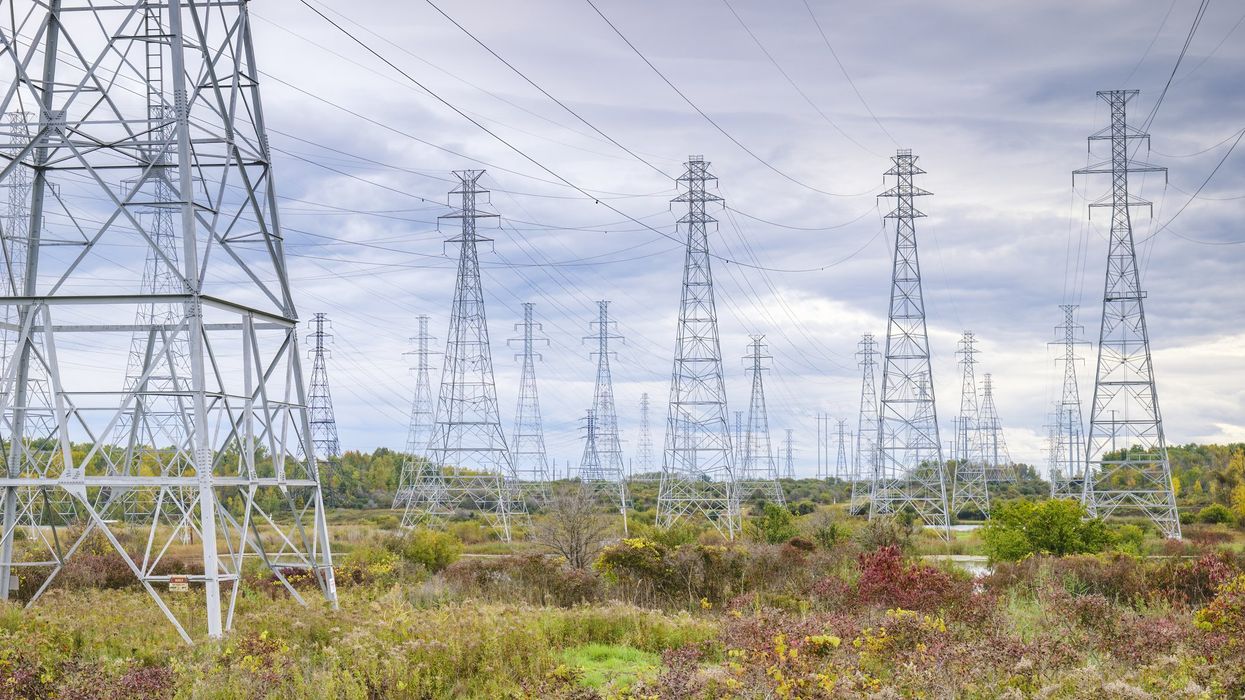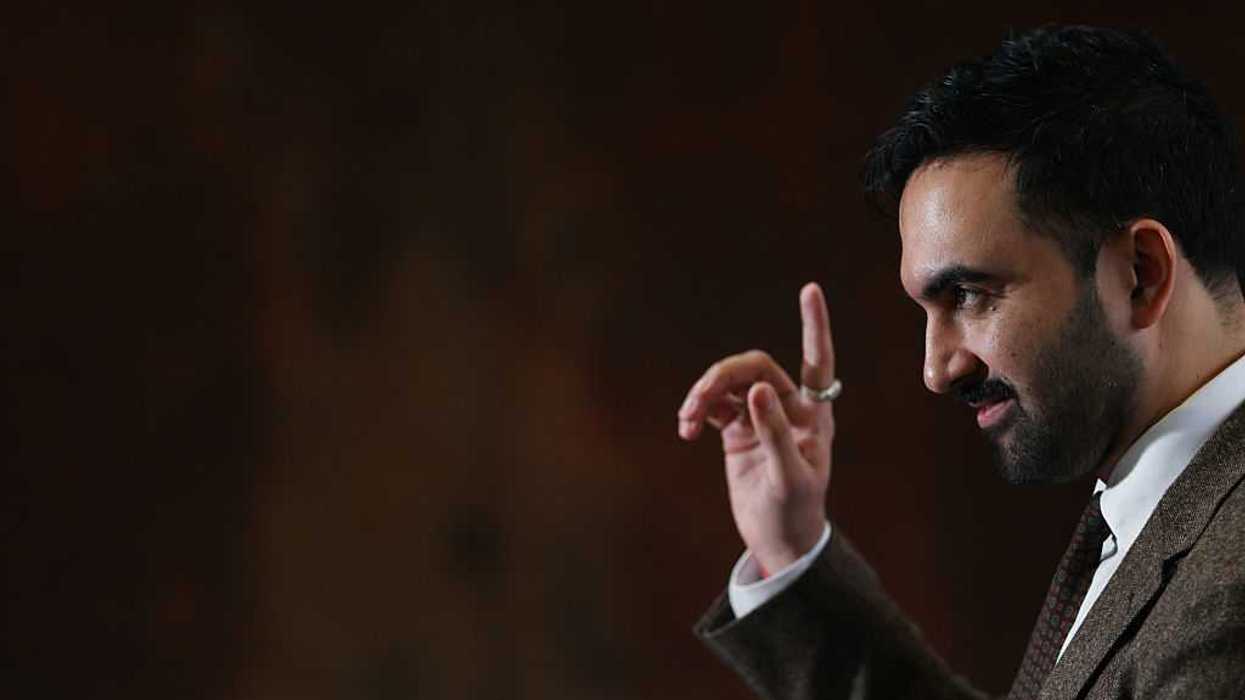We, here at Washington Power and Light, not a public utility, rather a D.C.-based virtual think tank founded by an iconic software developer and an economic policy geek) contend that pragmatism is the new radicalism. Romantics and fanatics now dominate the agenda-setting of the two major political parties.
That’s ending.
Washington Power and Light’s main focus is on good energy policy. We observe that energy abundance is the real root of the policy tree, the big unlocker of equitable prosperity. Abundant energy yields national energy, food, water security, and, finally, abundant good jobs. This means rising per capita real GDP, which supply-side 1.0 increased from $30,000/year in 1979 to $70,000/year now.
Energy austerity, by contrast, brings famine, poverty, and even scarcity-driven war. Meanwhile, across the board, increasing our standard of living—and the quality of life as well as our civic and political functionality—is determined by pragmatism.
Not by zealotry or dreamy, holier-than-thou aspiration.
Let us remind you, dear reader, of the largely forgotten corollary to the most vivid line of Barry Goldwater’s 1964 presidential acceptance speech: “… moderation in the pursuit of justice is no virtue.” We consider that the word moderate, implying restrained, is a misleading epithet for the new ethos.
Pragmatism is—and we propose to make it—the new radicalism. Call us radical pragmatists.
We are not making up the implications for abundance. As we have elsewhere written, Prof. Paul Romer won a Nobel Prize in economics for demonstrating that much of increased prosperity comes from innovation: Research and Development.
Some of the best of which have been, should be, and surely again will be federally funded. (Hello, DARPA invented the Internet!)
The subtitle of Saul Alinsky’s magnum opus, “Rules for Radicals,” is “A Practical Primer for Realistic Radicals”. Note in passing, Alinsky was never a communist (an accusation of which he was fully exonerated by J. Edgar Hoover’s FBI). Nor, as revealed by Alinsky’s life and writings, was he even a socialist.
Paraphrasing Alinsky’s subtitle, we offer a Radical Primer for Realistic Pragmatists. No militant declaration of doom!
Rather, the opposite.
The late economist Herbert Stein coined an unrepealable natural law of politics: "I have tried to comfort people who worry about this (the twin deficits) by propounding Stein’s Law which is that if something cannot go on forever, it will stop."
And as our political crystal ball clears, it is becoming vivid that the era of fanaticism and romanticism—at least as applied to energy policy—is, indeed, stopping. How so?
Because both fanaticism and romanticism are political losers.
As Roger Pielke Jr. and Ruy Teixeira at the radically pragmatic American Enterprise Institute recently wrote:
- “The relationship between voter opinion, scientific assessment, and media narrative is poorly understood, thereby reinforcing the current extremely partisan and tribal public discussions about energy and climate.
- The public’s views and the Intergovernmental Panel on Climate Change’s scientific analysis differ in important respects from the narrative that has come to dominate the mainstream media and public discourse on climate and energy.
- The public broadly supports an “all-of-the-above” approach to energy policy and does not generally support a rapid elimination of fossil fuels. Instead, they support increased domestic production of fossil fuels.
- The public is most interested in the cost and reliability of the energy they use and the convenience and comfort of their energy-using products. They are unwilling to sacrifice much at all financially to address climate change or significantly change their consumer behavior.”
They conclude:
“What people want—and need—is abundant, cheap, reliable energy. Therefore, if what you are advocating appears to have little to do with that goal and in some ways undermines it, no amount of rhetoric about a roasting planet and no amount of effort to tie every natural disaster to climate change is likely to generate the support needed for what is sure to be a lengthy energy transition.
There are some signs that some climate advocates have recognized that the narrative is out of step with the broader public’s views. Jody Freeman, a counselor for energy and climate change for President Obama, observes, “There’s no way around it: The left strategy on climate needs to be rethought. We’ve lost the culture war on climate, and we have to figure out a way for it to not be a niche leftist movement.”
Our findings suggest that climate change policy, in the end, must be embedded in and subordinate to the goal of energy abundance and prosperity. In other words, as energy abundance is pursued, efforts to mitigate climate change should be undertaken within those boundary conditions, rather than climate change being pursued as the paramount goal and with energy abundance limited by pursuit of those goals. The approach recommended by the narrative has things exactly backward.
It’s time to replace the narrative with something that makes scientific, political, and economic sense.”
AEI, which scores center right, is by no means alone. The abundance agenda, a.k.a supply-side progressivism, is gaining solid traction among Democratic Party thought leaders, influencers, and officials.
Behold, the House of Representatives has conjured the Build America Caucus. Per a press release issued last May by Rep. Josh Harder:
Today, more than a dozen bipartisan members launched the bipartisan Build America Caucus, a first-of-its-kind effort in Congress to advance pro-growth policies. While momentum for the abundance agenda has grown in cities and states, this caucus marks the first coordinated push to bring that vision to Capitol Hill. The caucus includes nearly 30 members from across the ideological spectrum, many of whom hold key committee assignments, putting the group in a strong position to pass meaningful legislation. Rep. Josh Harder will serve as Chair.
The Build America Caucus will prioritize:
· Unleashing American energy through permitting and transmission reform.
· Making housing affordable by incentivizing states and cities to build more homes.
· Speeding up American infrastructure projects by streamlining requirements and cutting red tape.
The Build America Caucus at its most recent count? 17 Democrats and 11 Republicans. QED. They are on the right track and are right to prioritize the unleashing of American energy abundance for, as Bastiat showed over 200 years ago in “That Which is Seen and That Which is Unseen”, they prove cognizant of all the lost, ghost jobs in all the ghost factories, those never built:
“Thus we learn, by the numerous subjects which I have treated, that, to be ignorant of political economy is to allow ourselves to be dazzled by the immediate effect of a phenomenon; to be acquainted with it is to embrace in thought and in forethought the whole compass of effects.”
Policies that provide energy abundance?
After many years of yearning, expressed by bipartisans of both parties, a convergence between Abundance Democrats and Equitable Prosperity Republicans is beckoning, optimally beginning with good abundance energy policies. If enough thoughtful readers will vocally cheer their elected officials to become radical pragmatists, perhaps the policy fulcrum now will at long last find its lever in a new abundance agenda.
Jeff Garzik, the founder of HEMI.xyz, serves as the founder and chairman of the policy institute Washington Power and Light. Earlier he spent five years as a Bitcoin core developer and ten years at Red Hat. His Work with the Linux kernel is now found in every Android phone and data center running Linux today.
Ralph Benko serves as co-founder and general counsel to Washington Power and Light. He is the co-founder and general counsel for F1R3FLY.io and has worked in or with three White Houses, two executive branch agencies, and the Congress as well as many political and policy institutes.



















